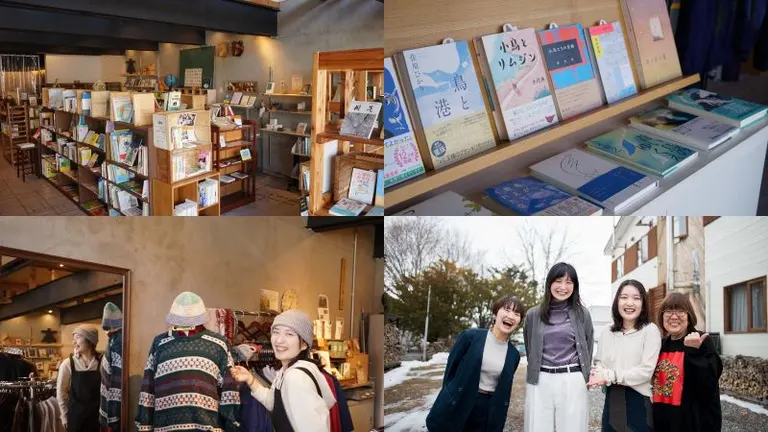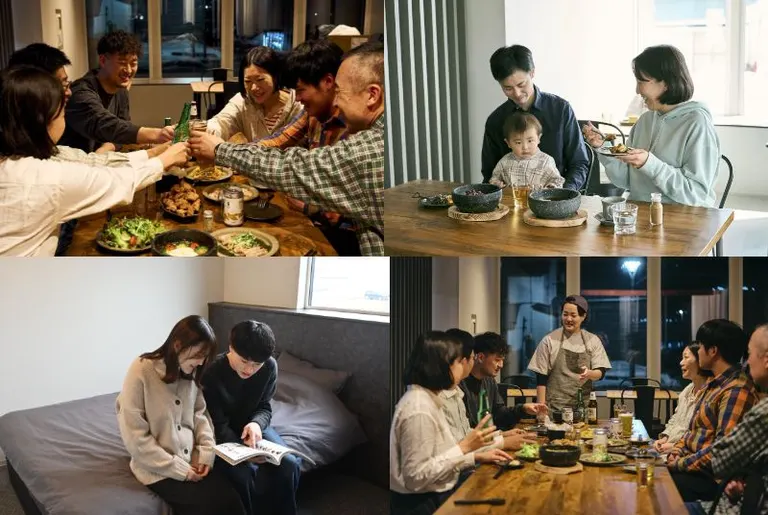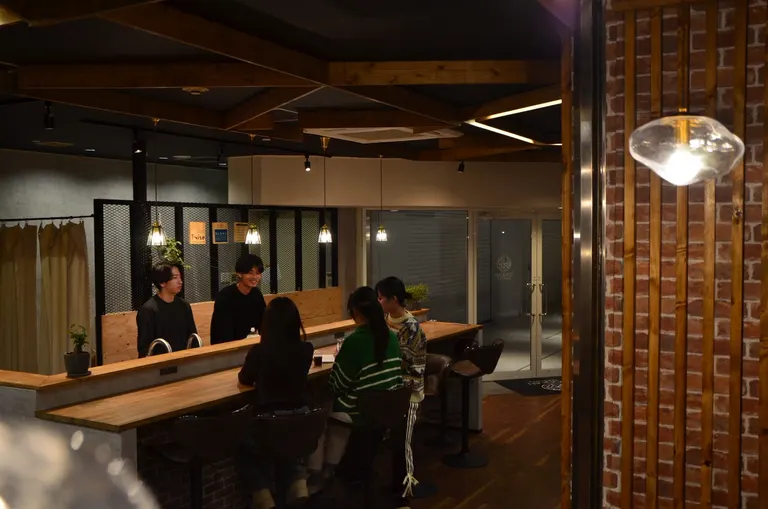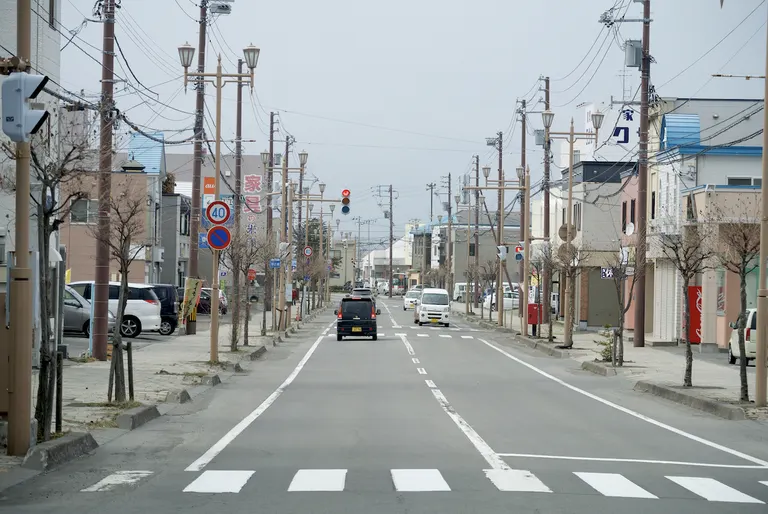
ARTICLES
Making a Small Town Convenient, Rich, and Fun with Digital Power: The Many Projects of a Former Civil Servant in Mori Town
Table of Contents
1. I had zero digital knowledge as a newcomer.
2. The local university that accepted my desire to do research.
3. An unexpected disaster showed me the way forward.
4. I wanted to preserve the town's fading memories somewhere.
5. Recording the town's memories through photographs.
6. You can work well and live happily even in the countryside.
I had zero digital knowledge as a newcomer.
Born and raised in Mori Town, Mr. Yamagata graduated from high school in 1998 and started working at the Mori Town Hall. He was first assigned to the department in charge of municipal housing, and five years later, he was transferred to the information technology department.
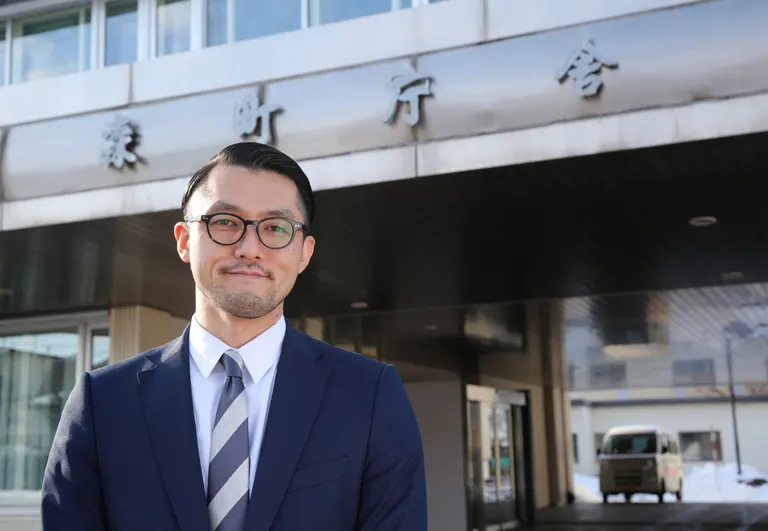
"When I started, it was an era where there was only one word processor in the entire town hall, and official approval documents were handwritten. Then, around 2000, calls for 'one computer per person' began to rise in local governments, and IT implementation was promoted under the national government's leadership."
His first job was to lay LAN cables within the government building. Besides that, he was solely responsible for all things digital, such as setting up computers, building servers, and designing the network. "It's not like I graduated from an IT school, so I wasn't knowledgeable. I was just the youngest person in the office, so I was put in charge," Mr. Yamagata says with a laugh.
"For technical matters, I received support from the vendors who built the infrastructure. They were all great people and would patiently teach me anything I didn't understand. They would often say things like, 'It'll cost you money if you ask our company to do it, so you should do this yourself. I'll teach you how.' Supported by such goodwill of the internet, I rapidly absorbed knowledge."
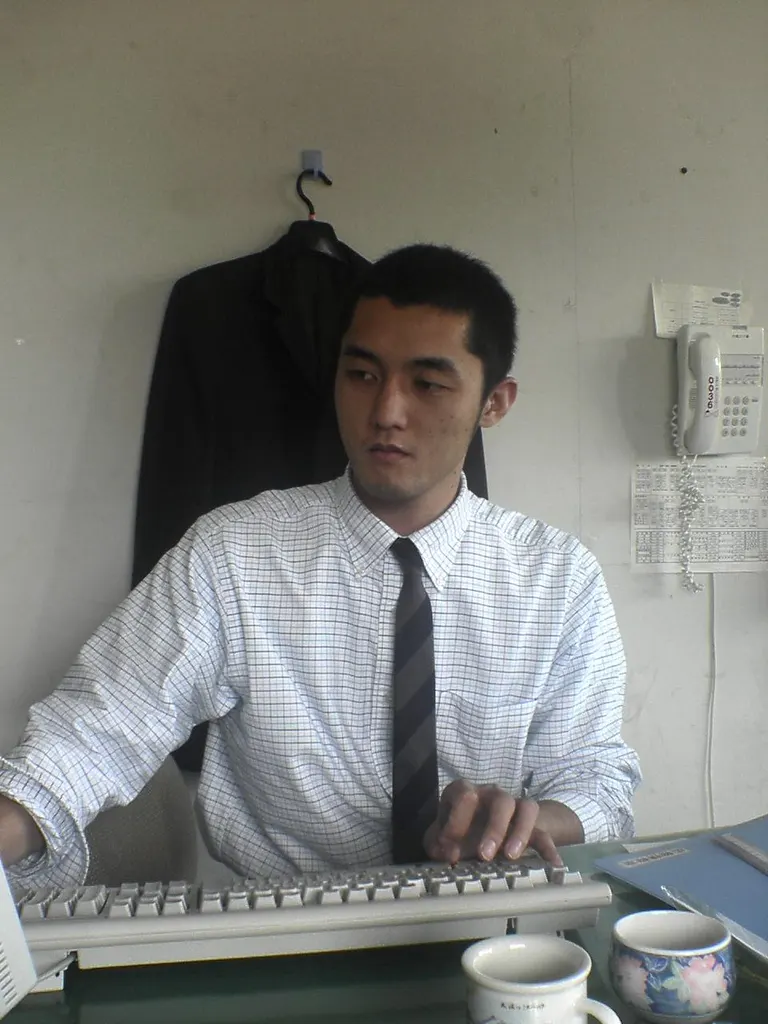
Mr. Yamagata around 2003, shortly after becoming the dedicated IT person
He spent the first five years focusing on setting up the equipment. It was a daily grind of just trying to build things and get them running. Just when he thought things were finally taking shape, it was time to update the equipment... in that cycle, he was always operating at full capacity.
The local university that accepted my desire to do research.
Amidst all this, the issue of cost reduction was a constant topic of discussion.
"If we outsourced everything to vendors, the costs tended to be high. I wanted to use new technology to solve this, but the town hall couldn't afford the expenses. At first, I was funding my research out of my own pocket, but as my technical skills improved, the scale of my projects grew. There were times I wanted to spend several million yen on testing, but that was obviously not feasible."
It was then that his supervisor at the time asked him, "What do you think is the purpose of having a university in the community?" He advised, "If you want to do something new to solve the community's problems and challenges, you might find that the university will do research with you if you consult them."
"I thought, 'Oh, so that's what universities are for.' I searched for 'Future University Hakodate' on mixi and cold-contacted Professor Michiko Oba, who came up in the results. She was very intrigued and said, 'Come visit anytime.'"
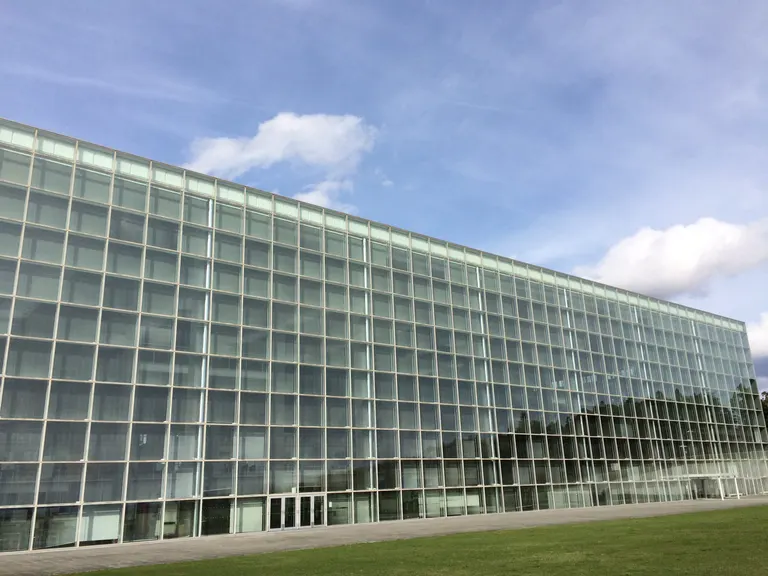
Future University Hakodate
An unexpected disaster showed me the way forward.
Future University Hakodate is a single-faculty university consisting of the School of Systems Information Science. The professors might have been surprised when a town hall employee showed up wanting to "do research." Nevertheless, seeing Mr. Yamagata's enthusiasm, they put their efforts into joint research.
It was during this time that the Great East Japan Earthquake occurred. Mori Town in southern Hokkaido, being close to the Tohoku region, was also affected. Various damages were reported across the area, including a tsunami that came very close to a shelter where townspeople had gathered.
"When we tried to use phones to make contact, it was difficult to get through. But the internet was working, and I was reminded of its strength during a disaster. At the same time, there were issues like when foreign residents wanted to contact their home countries, I was the only one who knew about the town hall's network. That made me feel strongly that we needed to create an environment that anyone could operate continuously."
This event prompted him to start research on open data (data published under rules that allow anyone to reuse it) and other related topics in collaboration with the university. In 2012, they began the full-scale operation of a public cloud (a service where users share servers, software, etc., via the internet) in the municipality.
"Professor Oba taught me the concept of open data. It's the 'open by default' principle, which means that the data we, as town hall staff, create is a public good and should be accessible to everyone. The professor also said it was a very interesting research topic."
I wanted to preserve the town's fading memories somewhere.
Then, a change occurred in his private life as well.
"My grandma developed dementia. I was very close to my grandma, so I struggled with the idea of putting her in a facility and felt the sadness of not being able to have a proper conversation with her."
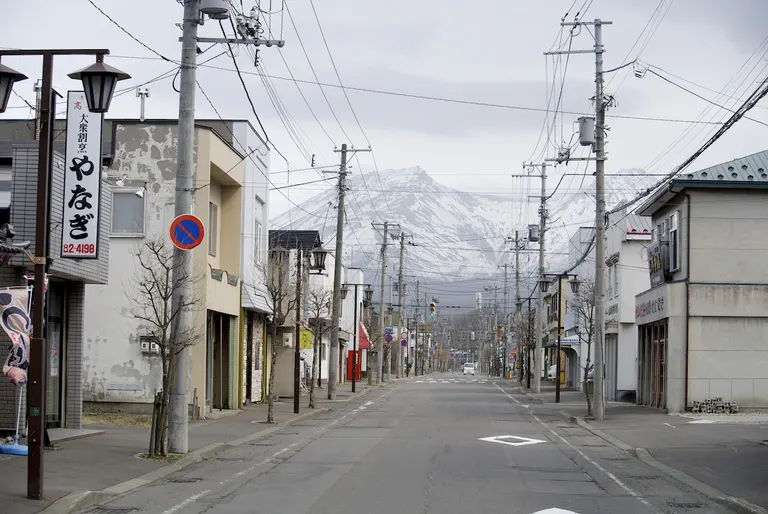
Witnessing his grandmother's memories fade day by day, Mr. Yamagata began to think, "Can I preserve information about my grandma?" When he mentioned this to a friend knowledgeable in open data, whom he met through his joint research with the university, the friend told him things like, "Archiving old information, not just new, can also become a database," and "There are activities dedicated to preserving old data."
"At first, it was for a personal reason—wanting to preserve the town my grandma had seen. But then I started to think that maybe there were other people who love Mori Town and want to preserve its local history. When I looked at Mori Town's Wikipedia page, there were only nine entries at the time. But I had heard so many more stories from my grandma. So I thought, 'Let's preserve them,' and that's when I launched the organization called Howmori."
In 2015, Howmori hosted the "1st Wikipedia Town Mori," where 10 participants researched the history of Mori Town at the library and added information to Wikipedia. Through this activity, the information on Mori Town, which previously had only nine entries, was greatly enriched. Now, just by opening Wikipedia, even people who don't know Mori Town can get a general understanding of it.
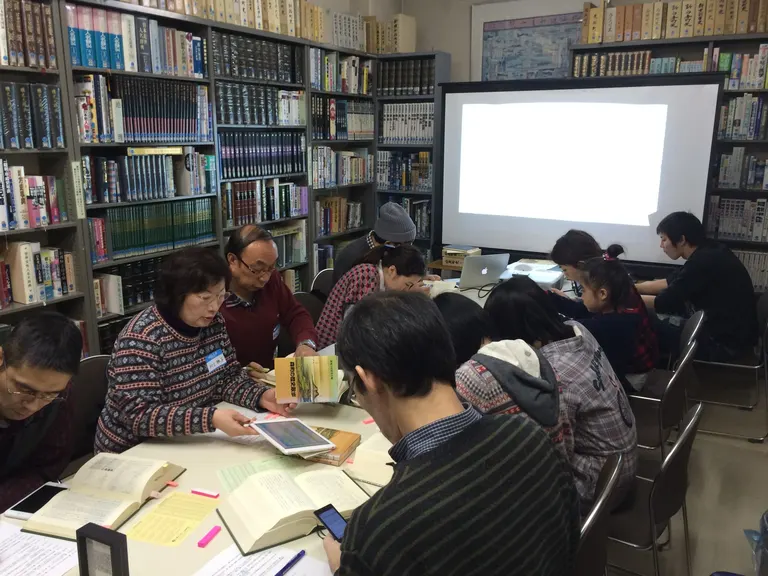
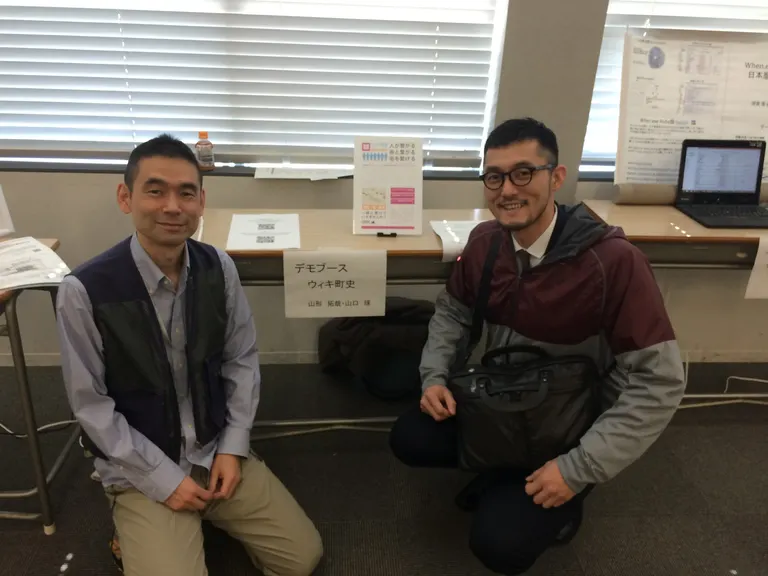
The Wikipedia Town initiative won the Grand Prize in the Idea Category at the LOD Challenge 2014 (in 2015)
Recording the town's memories through photographs.
After that, while holding study sessions and events on open data, he also started the "Recording Memories" project, which involved collecting old photographs of Mori Town and taking new pictures that match the current scenery.
"This was something I continued as a sort of hobby, but a friend from Rissho University said, 'Can we do something together?' He then brought students all the way to Hokkaido, and they helped with the task of identifying the locations in the old photos and actually taking pictures of the current scenes."
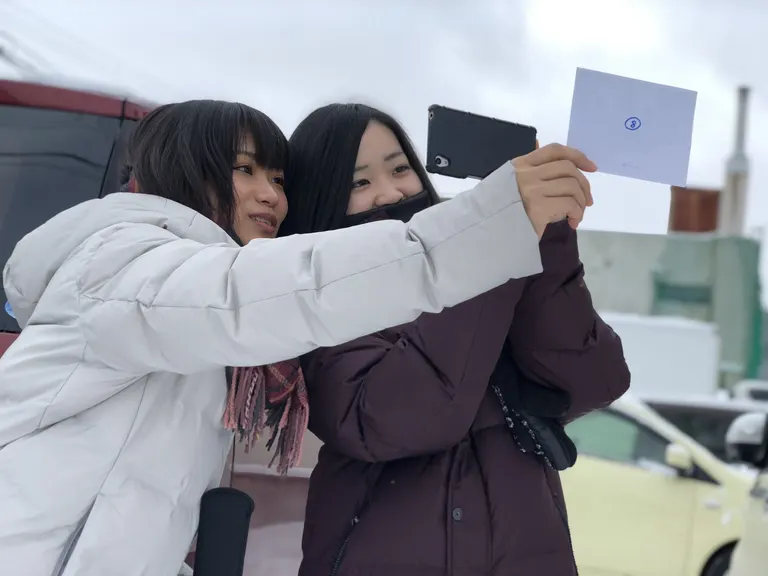
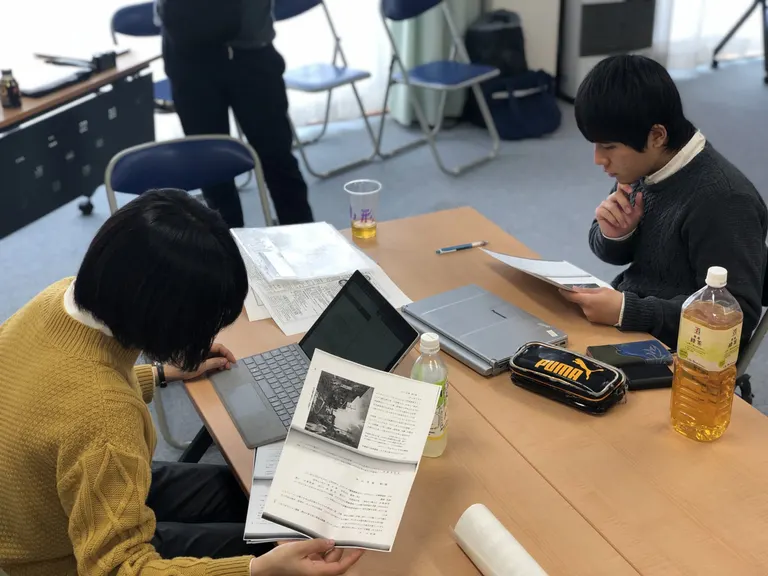
This activity continued for about three years, with students visiting Mori Town annually. Some students were so inspired that they actively started similar projects in their own hometowns or created exhibits with old photos and maps at their university's cultural festival. The "Recording Memories" project gradually expanded beyond Mori Town.
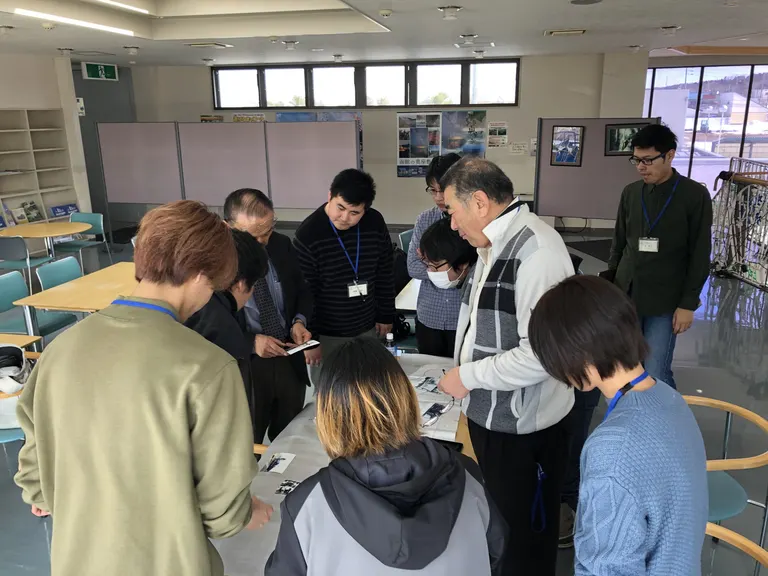
Students selecting photos with residents of Mori Town
Mr. Yamagata has watched his analog community gradually become more vibrant with the help of the internet. At the end of 2021, he left the town hall and has started activities to create a richer life not just for Mori Town but for the entire neighboring living sphere.
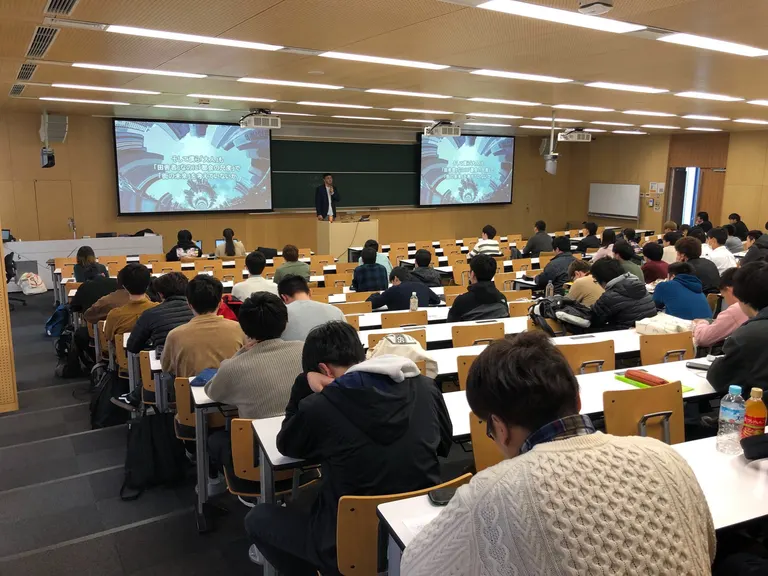
Mr. Yamagata giving a lecture at Rissho University
You can work well and live happily even in the countryside.
Currently, Mr. Yamagata belongs to Code for Japan, where as a member of the Govtech team, he focuses on research and support for the digitalization of governments across Japan. He is also involved in community activities related to the use of information technology in municipalities within Hokkaido. As an expert with deep knowledge of open data, he is also active as an "Open Data Evangelist for the Cabinet Secretariat's IT Comprehensive Strategy Office," dispatched to seminars hosted by local governments.
He is currently renovating a used property to create a base of operations. Rather than pursuing grand dreams or ambitions, his stance is to try things that seem interesting in the moment. If he gets a little bored, he moves on. How do the local people view Mr. Yamagata with this approach?
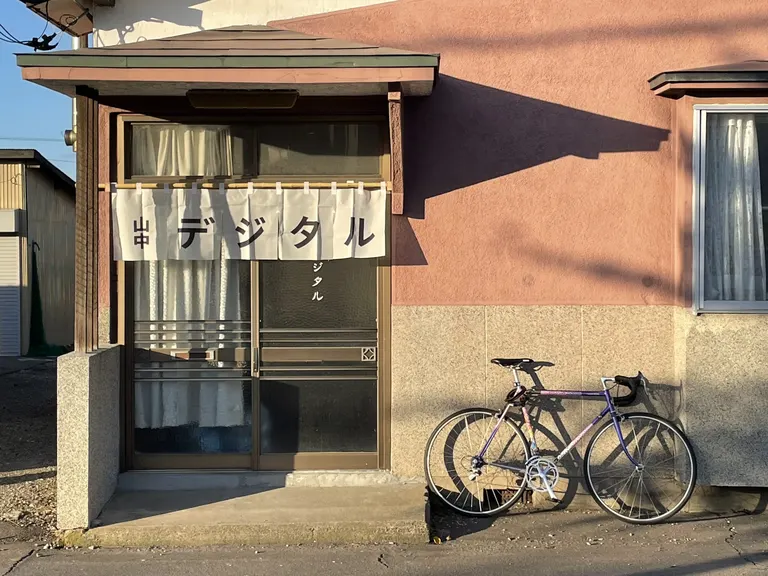
The new base is named "Yamanaka Digital"
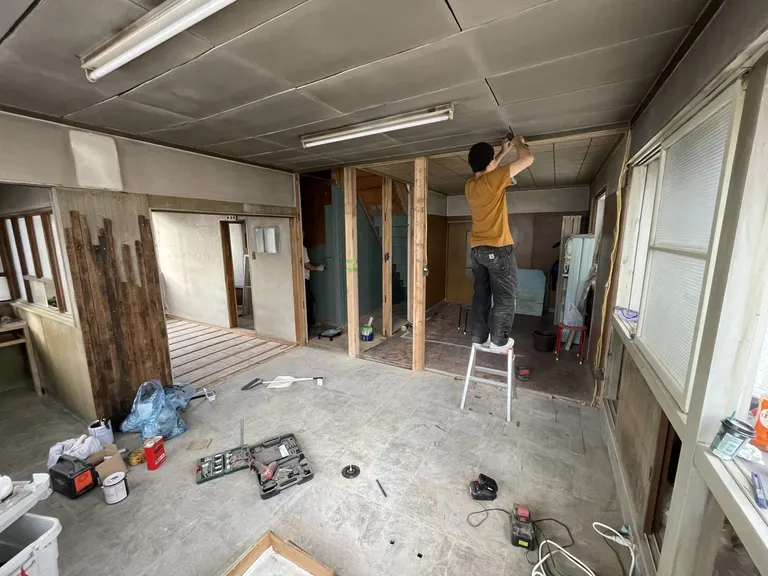
Currently under renovation
"For about a year, I've been doing this thing where I commute every morning while talking on a voice-based social media app with an earphone microphone. I've continued it even after leaving the town hall, and I hear there's a rumor going around that 'a big guy walks around town in the morning, grinning to himself' (laughs). It certainly looks a bit strange. I've heard people say things like, 'What does that guy do for a living?' or 'I hear he's doing something amazing with IT'..."
While being the subject of whispered speculation can be unsettling, Mr. Yamagata says, "I hope the rumors spread even more." The reason, he explains, is that in rural towns, there's still a strong image that job options are limited to things like taking over the family business, becoming a civil servant, or working at a supermarket.
"I hope that young people will see this 'adult whose job isn't clear' and realize that there are many more types of jobs out there, and that you can have a great career even in the countryside."

Mount Komagatake and the sunset, a favorite view of Mr. Yamagata
It goes without saying that remote work and dual-location living, which have become common in recent years, are made possible by the great power of the internet. If young people from Mori Town also start adopting new ways of working, the town will become even more interesting. It's not just about work; the sense of "I can't because I'm in the countryside" may be gradually fading from life itself.
Today, Mr. Yamagata continues to practice his motto, "Maa suwari na yo" (roughly, "Hey, take a seat and relax"), in various places, lighting up his small town with a ray of light brought by digital technology.
Takuya Yamagata
Practicing "digital and something" in a small town called Mori, located near Hakodate in Hokkaido. He has extensive practical experience in the use and construction of digital technology in government and educational settings, and specializes in thinking together and co-creating digital utilization in relatively small municipalities. His motto is "Maa suwari na yo."
Open Data Evangelist for the Cabinet Secretariat's IT Comprehensive Strategy Office / Regional Informatization Advisor for the Ministry of Internal Affairs and Communications
▼See more about Takuya Yamagata on Domingo
Takuya Yamagata
Writer Profile
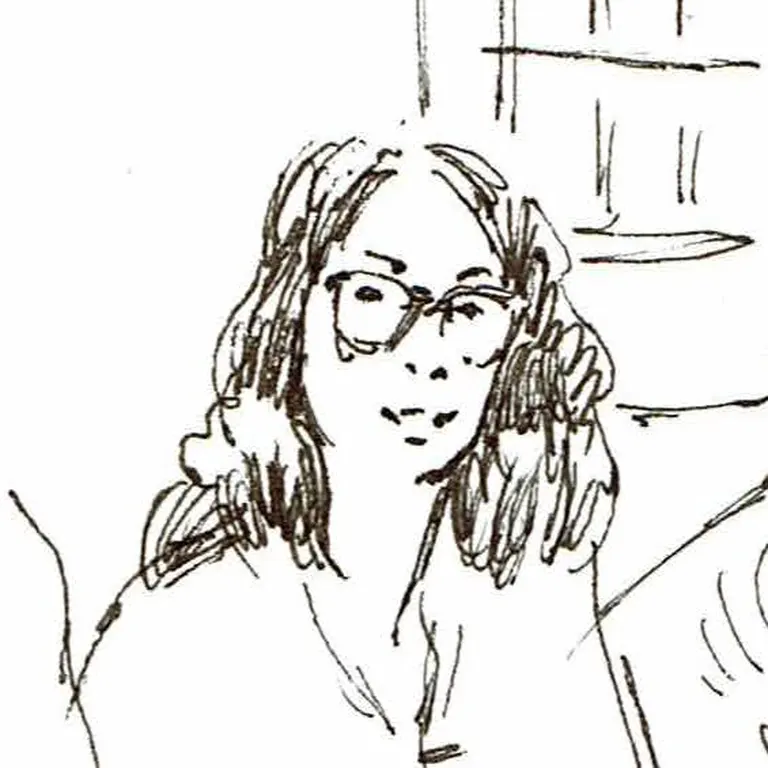 Satoko Nakano
Satoko Nakano
Born and raised in Tottori Prefecture, the least populated prefecture in Japan. After graduating from high school, I moved to Tokyo and lived there for about 20 years before moving to Kimobetsu Town with my family in August 2017. I enjoy the clear air and heavy snow at the foot of Mount Yotei and am touched by the warmth of the people every day.






